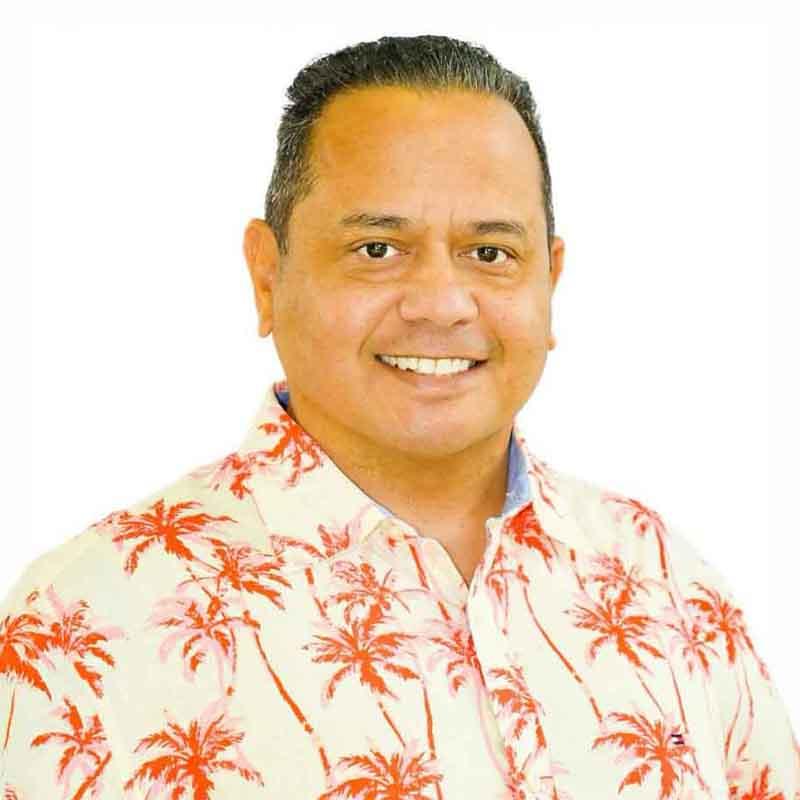
Over the past five years, cyberattacks targeting Pacific Island governments have escalated in both frequency and sophistication. While many of these attacks are blamed on criminal ransomware gangs, cybersecurity experts and intelligence agencies across the world now recognize a disturbing pattern: many bear the hallmarks of state-sponsored cyber operations, engineered to undermine the sovereignty, stability, and public trust of small island nations.
These attacks are not mere crimes of opportunity or bad business decisions on the part of the cyber criminals, who demand ransoms from countries still struggling economically from the pandemic. Increasingly, analysts and security experts recognize them as likely state-sponsored, designed to discredit leadership, disrupt services, and cast doubt on the competence of Pacific governments.
What makes these attacks so insidious is how carefully they are disguised.
Unlike traditional warfare, the fingerprints in cyber conflict are rarely clear. Rather than launching attacks directly, hostile state actors use criminal proxies, typically hiring ransomware gangs through what is known as Ransomware-as-a-Service. This business model mirrors legitimate cybersecurity outsourcing — but in reverse. Instead of hiring security experts to protect systems, malicious actors lease hacking tools and personnel to carry out attacks, allowing them to maintain plausible deniability. They hide behind the veil of circumstantial evidence — patterns of behavior, timing, and technical clues that strongly suggest involvement but stop short of outright attribution.
Pacific Island nations, often operating with limited technical capacity and tight budgets, are seen as easy targets. Attackers exploit the assumption that these governments cannot defend themselves. Yet one country is quietly showing that this assumption is wrong.
Palau, despite limited resources and a small pool of technical personnel, has begun to demonstrate that meaningful progress is possible without dramatic increases in spending. Through strategic leadership, collaboration, and practical policies, Palau is taking early steps to improve its cybersecurity posture and protect its sovereignty.
The first and most important shift Palau made was at the leadership level. Cybersecurity is no longer treated as a back-office IT issue but as a matter of national security.
Senior leaders, including the Office of the President and key ministries, have integrated cybersecurity priorities into Palau’s national development and public sector modernization plans. This shift in mindset required no new budgets or agencies. It was achieved through executive awareness and political will, recognizing that the integrity of government operations and public trust are at stake.
Palau’s approach is guided by established international cybersecurity frameworks such as the National Institute of Standards and Technology Cybersecurity Framework and the NIST SP 800-53 catalog of cybersecurity controls.
But rather than attempting to implement these frameworks in their entirety, Palau has taken a practical approach.
Government IT leaders are initially focused only on key controls that could be implemented immediately, using existing staff, processes, and partner support. This selective, scalable adoption has enabled Palau to begin closing security gaps without overextending its limited resources.
One of Palau’s early successes has been the development of an incident response playbook.
Understanding that attacks are inevitable, Palau’s government IT teams have drafted and rehearsed a clear, simple incident response plan. This playbook defines how ministries will respond when an incident occurs, outlining responsibilities, communication protocols, recovery procedures, and investigation steps. Palau has not built this in isolation. It has worked alongside regional partners and cybersecurity allies to conduct tabletop exercises, strengthening its response capability without investing in expensive training programs.
Equally important has been Palau’s focus on user awareness.
Recognizing that people are often the weakest link in cybersecurity, the government launched internal awareness campaigns embedded within existing staff briefings, onboarding processes, and department meetings. Instead of waiting for funding to pay for costly awareness programs, Palau’s government IT office used its current workforce to train staff on identifying phishing attempts, practicing safe password management, and reporting suspicious activity. This low-cost approach has already yielded results, with more employees now recognizing and reporting phishing emails before damage can occur.
Asset management — the ability to know exactly what hardware and software exist on government networks — is another area where Palau is making significant progress without additional resources.
Government agencies developed a simple but effective solution: a centralized spreadsheet updated monthly with asset reports from each ministry. While this may seem basic, it is a critical step toward better cybersecurity visibility and governance, and it was achieved without purchasing expensive asset management software. If a device can’t be patched, updated, protected, or replaced, it must be disconnected from the internet.
Palau is also tightening access controls across government networks.
By leveraging existing network configurations and policies, IT administrators ensure that employees only have access to the data and systems required to perform their duties. This simple but crucial step has reduced the risk of insider threats and limited the potential damage in the event of an account compromise.
Another overlooked but vital area is third-party risk management.
Like many small nations, Palau depends heavily on foreign IT contractors and vendors. Recognizing this risk, the government has started inserting security requirements, data protection clauses, and breach notification obligations into its contracts and service agreements. Working with the attorney general’s office and procurement officials, agencies are strengthening these contracts without the need for additional funding or legal teams, using existing resources and staff to ensure vendors are held accountable for cybersecurity responsibilities.
Leadership must make cybersecurity a national priority — including budget allocation, legislative action, and public sector governance policies. President Surangel S. Whipps Jr. said in Palau’s National Security Strategy that ensuring cybersecurity and cyber defense requires prioritization and the development of modern infrastructure. Cyberattacks are no longer a question of if — but when.
Palau’s experience demonstrates that it is possible to prepare, defend, and respond effectively, even with limited resources. The results of these efforts, while still early, show that small island governments can make real progress against cyber threats without massive investments. Palau is building what security experts call a “layered defense” — combining leadership support, clear policies, staff awareness, technical controls, and vendor accountability to reduce risk. Each layer may seem small, but together they form a resilient defense against cyberattacks.
Pacific governments must stop treating cyberattacks as isolated IT problems and recognize them as strategic, geopolitical threats. The response must be national-level policy and action, supported by leadership at the highest levels. The Pacific is no longer isolated from the realities of cyber warfare. If more governments follow Palau’s lead — focusing on leadership, practical frameworks, and strategic use of existing capacity — the region can turn the tide. Effective cybersecurity is not only achievable, but absolutely essential to protecting sovereignty, stability, and public trust in the digital age. mbj
— Jay Anson is the chief information security officer at the Palau Ministry of Finance and can be reached at [email protected]


















